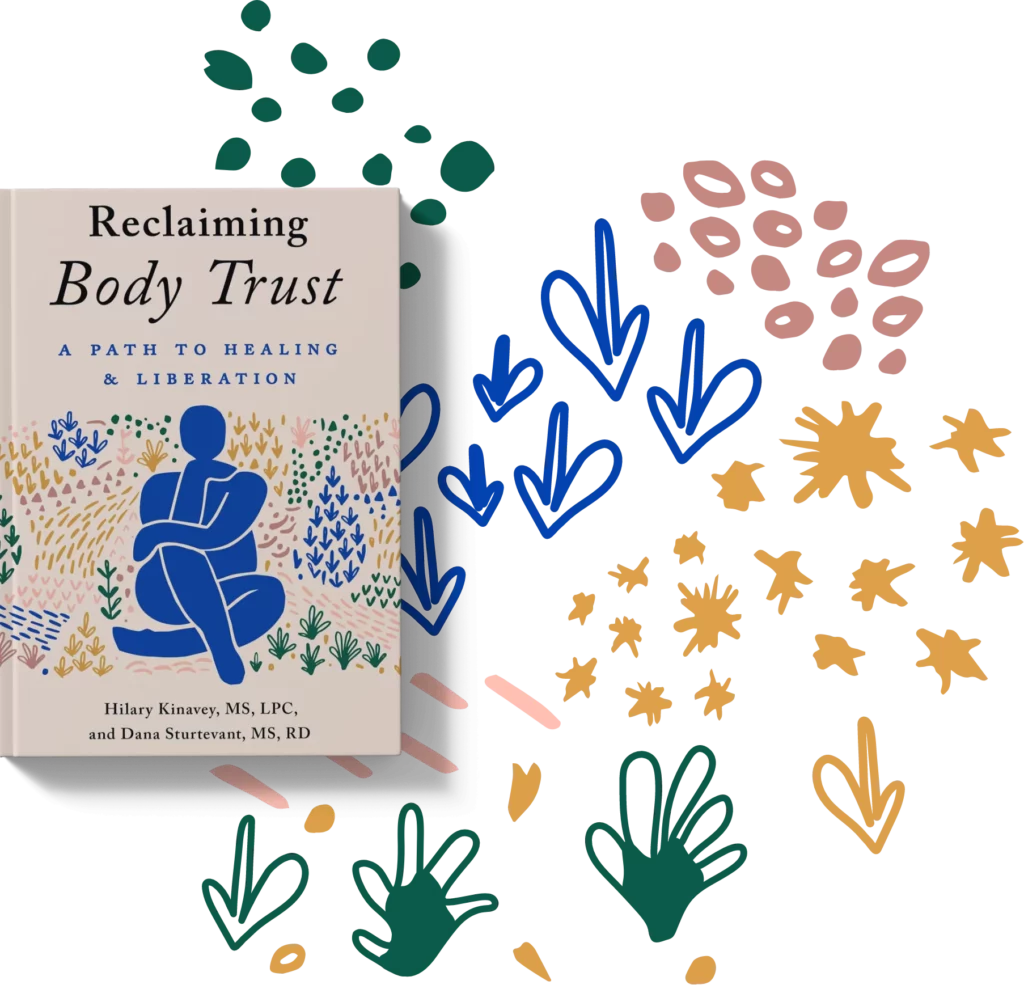Christmas is often seen as a vibrant and fun time of the year. However, for many individuals, the holiday season brings with it a number of triggers that impact our mental health. For those struggling with body image issues, the holiday season is an especially difficult time that can exacerbate feelings of anxiety, self-consciousness, and shame. The focus on food, special drinks, and dressing up for Christmas celebrations, can lead those with eating disorders and body image issues to socially isolate and increase obsessive and self-deprecating thoughts. They may also experience cognitive dissonance, where a part of them is tempted by foods, while another part is terrified to go near them.
The Triggers are Many
For people with body images issues and eating disorders Christmas brings with it many triggers:
Social Gatherings: Holiday events often involve dressing up and meeting people, which can spark self-consciousness and comparison with others, fueling feelings of inadequacy.
Holiday Photos and Social Media: The proliferation of photos and social media posts can amplify body image concerns. The quest for the ‘perfect’ holiday picture often leads to increased self-scrutiny.
Comments from Others: Offhand remarks about weight or appearance, though perhaps well-intentioned, can deeply impact those already sensitive about their body image.
Focus on Food: the focus on food can be unavoidable right around Christmas and New Year. Typically we spend the holiday with family and enjoy probably the more extravagant and calorie-laden meals we have all year.
People might exhibit behaviours like avoidance of social events, overexercising, disordered eating, and engaging in negative self-talk. These actions often stem from underlying feelings of anxiety, depression, and low self-esteem.
Coping Strategies
1. Setting Healthy Boundaries: Learning to say no is a critical skill. If certain events or conversations are likely to trigger negative feelings, it’s entirely acceptable to avoid them. Create a personal space that feels safe and nurturing.u
2. Mindful Eating: Instead of viewing food as an enemy, try to foster a healthier relationship with eating. Enjoy the holiday treats mindfully, savouring the flavours and textures, and listening to your body’s hunger and fullness signals. Remember, food is also about celebration and tradition, not just calories and weight.
3. Cultivating Self-Compassion: Replace critical self-talk with words of kindness and understanding. Remind yourself that perfection is an unrealistic standard. Practicing gratitude for your body’s capabilities rather than focusing solely on appearance can also foster a more positive body image.
4. Seeking Supportive Networks: Confiding in understanding friends or family members can provide a sense of relief and belonging. Professional help, such as therapy, can offer strategies to manage negative thoughts and emotions effectively.
5. Focusing on Non-Appearance Aspects of the Season: Redirect your attention to the other beautiful aspects of Christmas – the joy of giving, the warmth of family gatherings, and the pleasure of holiday traditions. Engage in activities that bring happiness and relaxation, such as listening to festive music, decorating, or crafting.
6. Limiting Social Media Exposure: Social media can often portray unrealistic standards of beauty and happiness. Taking a break from these platforms or curating your feed to include more body-positive and uplifting content can reduce the pressure to look a certain way.
7. Engaging in Nurturing Self-Care Activities: Activities like yoga, meditation, or enjoying a warm bath can significantly reduce stress and improve overall mood. Engaging in hobbies that you love or exploring new interests can also be a great way to shift focus from appearance-based concerns.
8. Exercise for Enjoyment, Not Punishment: If you enjoy physical activity, focus on how it makes you feel rather than how many calories it burns. Choose activities that you find enjoyable and energizing, whether it’s a gentle walk, a dance class, or a fun workout.
9. Practicing Relaxation Techniques: Techniques such as deep breathing, progressive muscle relaxation, or mindfulness meditation can help manage stress and anxiety levels. These practices can be particularly beneficial when dealing with overwhelming emotions or urges.
10. Planning Ahead: If you know certain situations are going to be challenging, plan how you’ll handle them. This might include having a supportive friend on speed dial, preparing responses to possible triggering comments, or planning non-food-related activities.
11. Reflecting on Personal Values: Remember what the holiday season means to you personally. Focusing on these values can help shift attention away from societal expectations and towards more fulfilling aspects of life.
12. Journaling: Writing down your thoughts and feelings can be a therapeutic way to process emotions. It can also be a means to track progress, recognize patterns, and celebrate small victories.
A Journey of Self-Acceptance
The Christmas season, while challenging for those with body image issues, also presents an opportunity for growth and self-discovery. By practicing self-compassion, setting boundaries, engaging in intuitive eating, seeking support, and finding joy beyond food, you can navigate the holiday season with greater ease and comfort.
The journey towards body acceptance and a healthier relationship with food and oneself is ongoing. Each step towards understanding and kindness towards oneself, especially during challenging times like the holidays, is a step in the right direction.
As a society we are moving away from ideologies around body shape and focusing more on acceptance of many shapes and sizes, as well as eating intuitively and accepting where our body is right now. For further reading around healing your relationship to your body, check out this great resource below:
Resource:

“Healing from the trauma of diet culture, body commodification, and internalized weight stigma requires a reclamation of our body as our home. We must take back that which has been stolen from us: the birthright to a body lived in with presence and delight.
Reclaiming Body Trust: A Path to Healing and Liberation by Hilary kinavey & dana sturtevant



